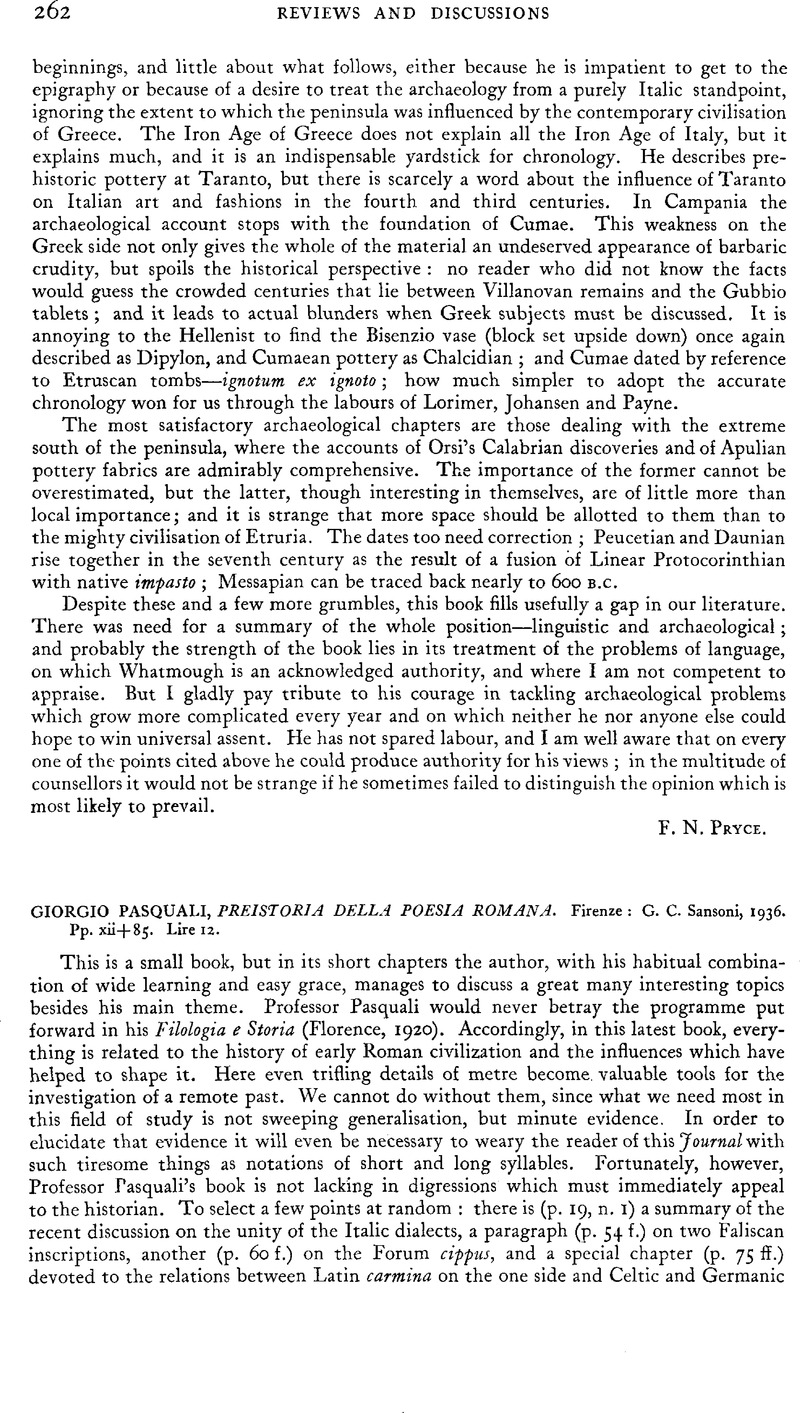No CrossRef data available.
Published online by Cambridge University Press: 24 September 2012

1 He mentions the point in a recent article (Stud. It., n.s. xiv, 1937, 61 ff.Google Scholar) wherein he defends the main thesis of his Preistoria against criticism raised from a linguistic angle.
2 I am only slightly rectifying Leo's result. For out of a number of 21 ithyphallici collected by him [Rh. Mus. xl, 173-178) he (p. 181) marks two as lacking a pure first ‘breve.’ Of these, one, viz. Cas. 151 (Leo, p. 176) goes out of court at once, for the line is a troch. septenarius (see Leo, Plaut. Cant. p. 104), and the other, viz. Aul. 145 te < d > id monitum advento, preceded by a cretic tetrameter, should be scanned as a colon reizianum (te id monitum advento) such as follows a cretic tetrameter in Pseud. 935 and a cretic dimeter elsewhere (see Leo, Pl. Cant. p. 60, n. 4). It is a pity that Leo when writing his book on the Saturnian verse should have overlooked the striking analogy. The above mentioned regulation of the ithyphallic cola of the Saturnians and its consistency with the rule after which the ithyphallic of Plautus are formed points emphatically to a Greek origin for the versus Saturnius and is therefore a corroboration of Professor Pasquali's main thesis.
3 Wilamowitz's alteration (Verskunst, 172 f.) has no probability.